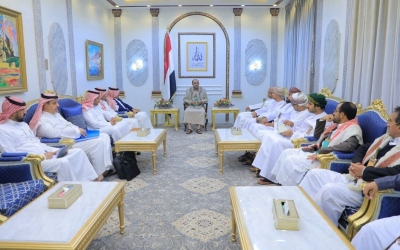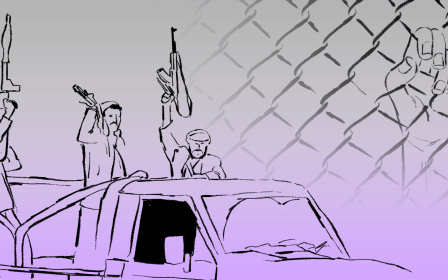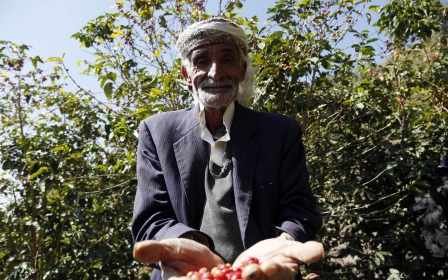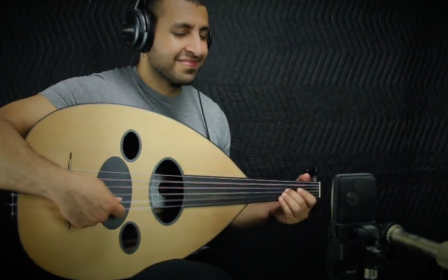Yemen: Major prisoner swap begins as more ceasefire talks agreed
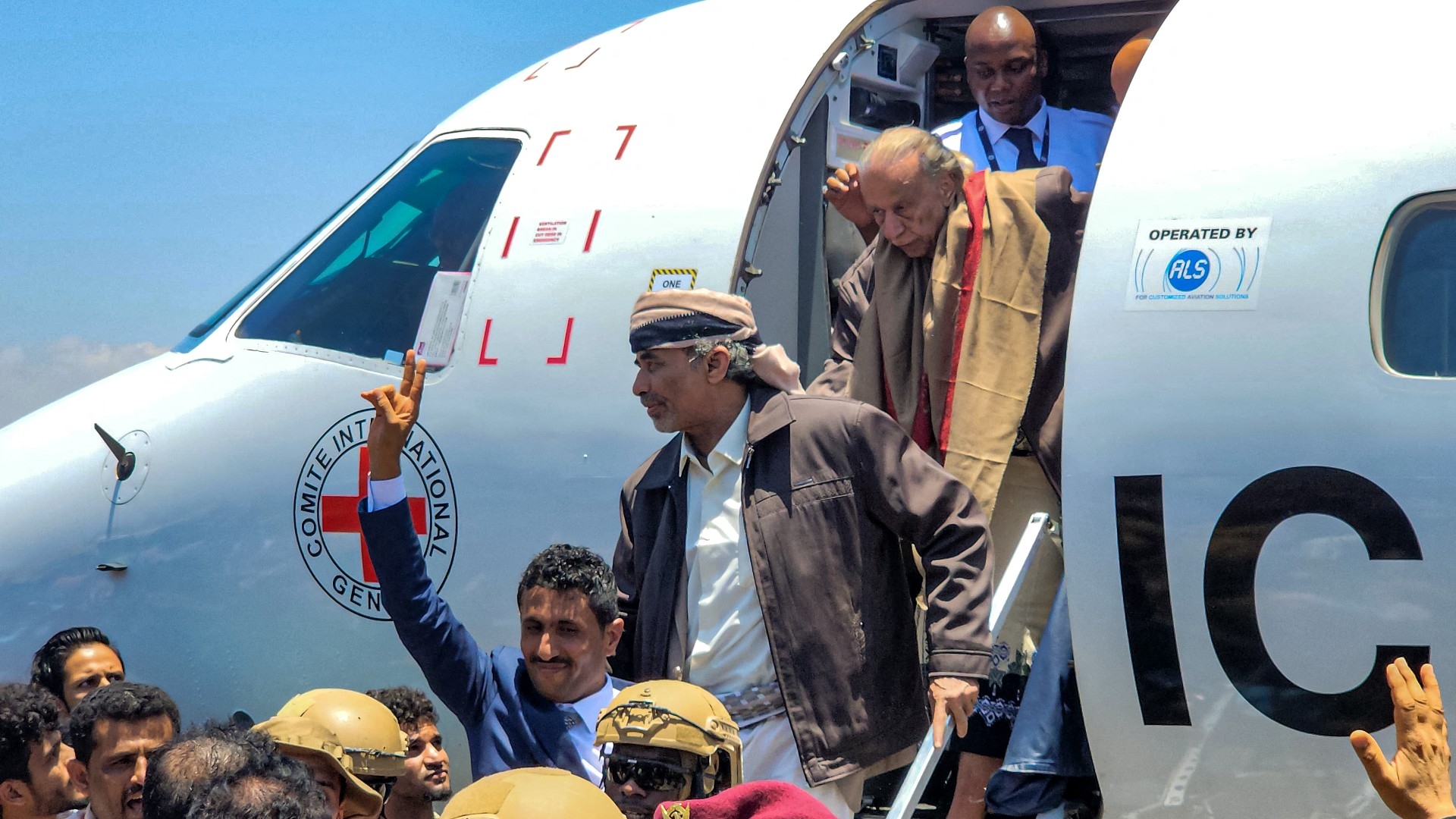
A prisoner exchange involving nearly 900 detainees on both sides of Yemen's civil war was underway on Friday, as the first round of talks between Saudi Arabia and the Houthis concluded in Sanaa.
The International Committee of the Red Cross (ICRC), which is managing the process, announced on Friday that the release and swap of 887 prisoners had begun.
"Our team has assessed the health of the detainees and confirmed they are fit to travel," the ICRC tweeted, with details about flights that had taken off between the capital, Sanaa, and Aden, in the south.
Detainees will also be released in the Yemeni cities of Marib and Mokha, as well as Riyadh and Abha in Saudi Arabia.
The exchange, which was agreed during negotiations in Switzerland last month, is the largest prisoner swap of the warring parties in Yemen since October 2020.
Stay informed with MEE's newsletters
Sign up to get the latest alerts, insights and analysis, starting with Turkey Unpacked
It begins on the same day that a Saudi delegation left the Yemeni capital following four days of ceasefire talks with the Iran-aligned Houthis.
While a truce was not finalised, talks were thought to be positive, and an agreement was struck to hold a further round of discussions to iron out remaining differences.
"The negotiations in Sanaa are going well, and in order to overcome the past, we have to look to the future," tweeted Houthi official Mohammed al-Bukhaiti.
"The announcement of the historic Sanaa Agreement will mark the birth of a new Arab Spring of reconciliation and tolerance."
In 2014, the Houthi rebel group seized control of the Yemeni capital and forced the country's internationally recognised government to flee to Saudi Arabia.
A Saudi-led coalition, which included the United Arab Emirates, intervened on behalf of the Yemeni government in March 2015 to push back the Houthis.
Coalition air strikes killed thousands of civilians, according to UN reports, while the Houthis launched missiles and drones at civilian infrastructure in Saudi Arabia and the UAE.
A six-month truce brokered by the UN that ended in October is still mostly holding, giving long-awaited respite to Yemenis.
Saudi, Houthi interests
The Saudi visit to Yemen came just weeks after a broader reconciliation between Riyadh and Iran, brokered by China.
Earlier this week, a Houthi soldier told Middle East Eye that the talks were proof of "Saudi surrender".
"Saudi Arabia and its allies had refused to talk with us directly. They described us as militias and terrorists," Yunis, 22, said. "They bombed us mercilessly, thinking they would defeat us.
"I am happy, and I feel I am living the best days in my life. This development has made thousands of fighters believe they are on the right direction."
The talks this week centred around a timeline for foreign fighters to leave Yemen, the payment of wages for public sector workers, and lifting restrictions on airports and ports in Houthi-controlled areas.
Nadwa al-Dawsari, a researcher at the Middle East Institute, told MEE on Thursday that Riyadh and the Houthis, who hold much of Yemen's north, are only looking after their own interests during the discussions.
"These talks have nothing to do with Yemen. These talks are between the Saudis and the Houthis," she told MEE. "They've got nothing to do with the other actors inside Yemen."
Saudi Arabia played a role in re-organising the Aden-based Presidential Leadership Council (PLC), a disparate collection of anti-Houthi forces in the country that serves as the executive body of the internationally recognised government.
The PLC, whose eight members include figures from the separatist Southern Transitional Council and a nephew of former autocrat Ali Abdullah Saleh, has largely been kept in the dark during this week's discussions.
The Aden-based government has welcomed de-escalation talks, despite appearing to be sidelined by its ally Riyadh.
Middle East Eye delivers independent and unrivalled coverage and analysis of the Middle East, North Africa and beyond. To learn more about republishing this content and the associated fees, please fill out this form. More about MEE can be found here.


